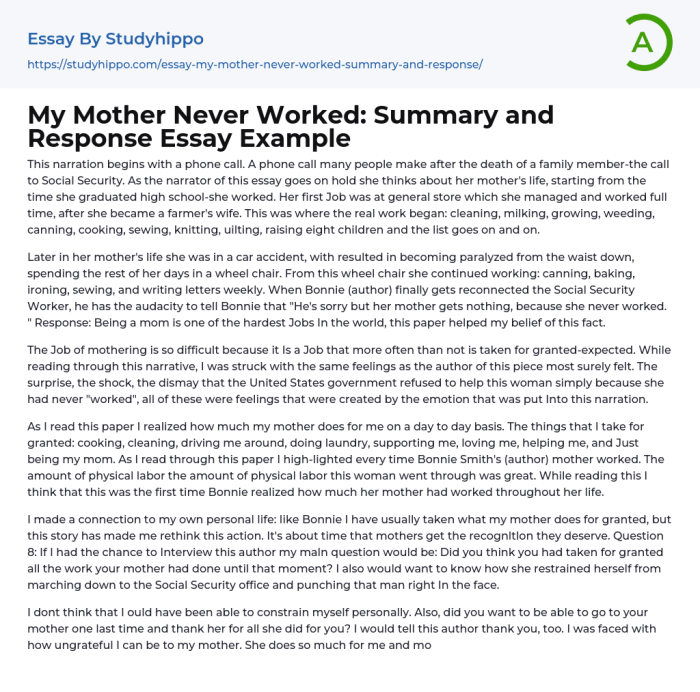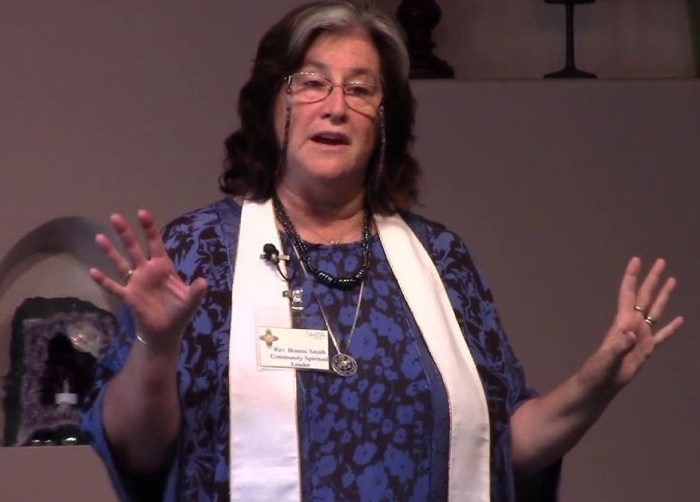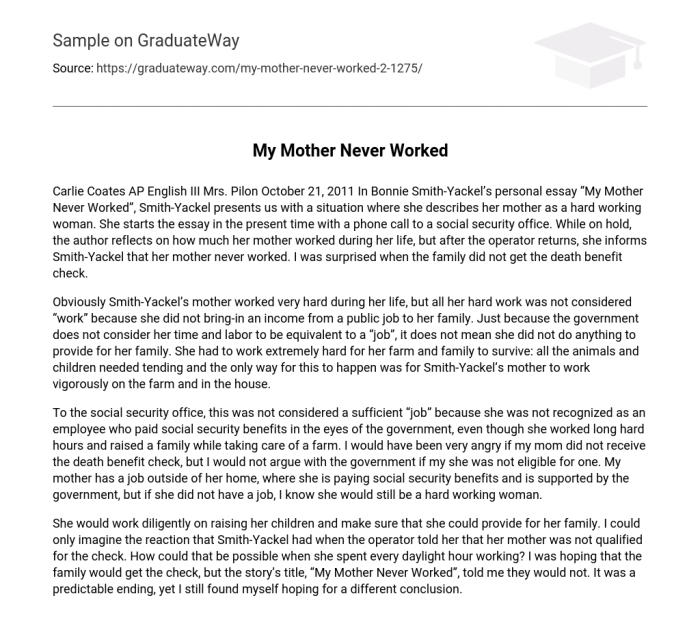My mother never worked by bonnie smith yackel – In her poignant memoir, “My Mother Never Worked,” Bonnie Smith Yackel delves into the complex and multifaceted topic of mothers who choose to forgo paid employment outside the home. Drawing upon personal experiences and a wealth of research, Yackel presents a nuanced and thought-provoking exploration of the societal expectations, familial dynamics, and individual outcomes associated with this lifestyle choice.
Through the lens of her own upbringing in a traditional household where her mother dedicated herself to domestic responsibilities, Yackel examines the historical context and cultural norms that have shaped women’s roles in society. She analyzes the economic and social factors that have influenced women’s work opportunities and the ways in which these factors have impacted family structures and individual choices.
Author’s Perspective
Bonnie Smith Yackel, the author of “My Mother Never Worked,” writes this piece to explore the societal norms and expectations surrounding women’s roles during the time period in which the piece was written. Yackel draws upon her own experiences as a daughter of a mother who did not work outside the home to provide a nuanced and personal perspective on the topic.
Historical Context
During the mid-20th century, when “My Mother Never Worked” was written, societal norms and expectations dictated that women’s primary role was within the domestic sphere. Women were expected to be wives and mothers, and their work outside the home was often seen as a deviation from this norm.
Mother’s Influence, My mother never worked by bonnie smith yackel
The mother in “My Mother Never Worked” is portrayed as a loving and dedicated parent who devoted her life to raising her children. Her decision to not work outside the home had a profound impact on the family dynamics, providing a stable and nurturing environment for her children.
Personal Reflections
Yackel shares her own experiences as a daughter of a mother who did not work outside the home. She reflects on the challenges and rewards of this lifestyle choice, exploring the emotional and psychological effects it had on her and her siblings.
Cultural Perspectives

Cultural attitudes towards women’s roles in society vary widely across different cultures. In some cultures, women are expected to prioritize their families over their careers, while in others, they are encouraged to pursue both. These attitudes have evolved over time, with increasing acceptance of women in the workforce in many societies.
Economic Considerations

The financial implications of a mother not working outside the home can be significant. Families may experience reduced income, which can impact household expenses, savings, and retirement planning. However, there are also potential financial benefits, such as reduced childcare costs and the ability to save money on transportation and other expenses.
Educational Attainment

Research suggests that a mother’s work status can have an impact on her children’s educational outcomes. Children of mothers who work outside the home may have higher levels of educational attainment, while children of mothers who stay at home may have lower levels.
However, these findings are complex and vary depending on factors such as the mother’s education level, family income, and childcare arrangements.
Social Support

Social support is crucial for mothers who do not work outside the home. Family, friends, and community members can provide emotional and practical assistance, such as childcare, transportation, and companionship. Strong social support can help reduce stress and improve the well-being of both mothers and children.
Quick FAQs: My Mother Never Worked By Bonnie Smith Yackel
What is the central argument of “My Mother Never Worked”?
Yackel argues that the decision of whether or not to work outside the home is a complex one that is influenced by a multitude of factors, including societal expectations, familial dynamics, and individual preferences.
How does Yackel’s personal experience shape her perspective on maternal employment?
Yackel’s upbringing in a traditional household where her mother did not work outside the home provides her with a unique lens through which to examine the topic of maternal employment. She draws upon her own experiences to illustrate the challenges and rewards associated with this lifestyle choice.
What are the potential benefits of maternal employment for children?
Research suggests that children of working mothers may benefit from increased exposure to different perspectives, enhanced cognitive development, and improved social skills.
What are the potential drawbacks of maternal employment for children?
Some studies have found that children of working mothers may experience increased levels of stress and anxiety, as well as diminished parental involvement in their daily lives.
How does Yackel’s work contribute to the broader dialogue surrounding women’s roles in society?
Yackel’s analysis challenges traditional assumptions about women’s roles and encourages a more nuanced understanding of the diverse paths that women may choose to lead fulfilling and meaningful lives.